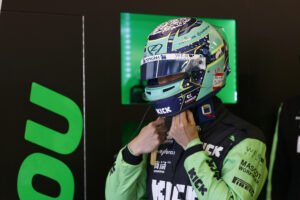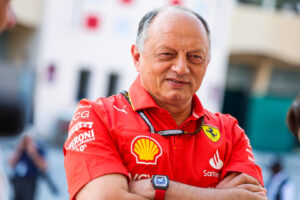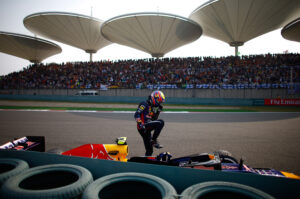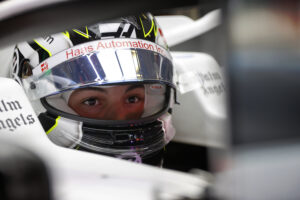Formula 1 racing has already experimented with virtual reality. This past spring, the organization announced its DreamVR 360 immersive experience, which was designed to bring racing fans closer to the action than ever before. The VR game program facilitates an up-close, in-person perspective on Grand Prix moments and behind-the-scenes activity, and is thus something of a dream come true for some enthusiasts.
And it’s likely that the app will only be further enhanced over time, with more experiences being worked in.
Given this experience though, we can’t help but wonder what a major VR gaming effort for Formula 1 might look like, or what it could do for the sport and its fans.
To date, VR is primarily associated with a small handful of gaming genres and styles. Shooting games are the first that a lot of people will think of, and have certainly been some of the most experimental, innovative, and popular options in the budding VR category. It’s not quite a genre, but we’ve also seen VR used in more cartoonish, playful games. And we’re beginning to see some movement into the casino category as well. Various online casino bonuses, slot game variety, and increased accessibility have made these types of games more popular than ever, and VR is demonstrating the potential to take all of these games to the next level.
While those are the areas that have produced some of the most popular games and promising developments though, there’s one genre of VR gaming that has perhaps been the steadiest from the very beginning: racing. It’s a clear but persistent problem that shooters, adventure games, and all sorts of other genres require physical movement in a way that forces VR developers to get inventive and come up with workarounds. More sedentary activities make for more natural adaptations, which is one reason casino games are beginning to show promise, but also the main reason why racing has been such a reliable VR genre. Even the most action-packed racing game doesn’t require any more than arm, hand, and neck movements for the player (or driver). Physically, you’re just sitting still.
Because of this, some of the very first games when VR started to gain commercial popularity in early 2016 were of the racing variety. Today, there are several excellent examples of VR racing games – some realistic and some not so much, but all, for the most part, mechanically similar. Naturally, these games set the stage for a fairly easy move into VR gaming for Formula 1, should the organization wish to expand on its flirtation with the technology.
First and foremost, such a game could allow tens of thousands – perhaps millions of fans around the world – to experience what it’s like to drive a Formula 1 vehicle. Of course nothing is a substitute for the real thing, and most of us will never get the chance to drive such a car. But in VR, aspects of the sensory experience can be replicated in a very convincing way.
To some extent, racing fans could ‘live the dream’ in a VR game featuring f1.
Maybe even more importantly though, a Formula 1 VR game, with a bit of a marketing effort behind it, could also create new fans, and generally make the sport more accessible. F1 is popular all around the world, but for those who aren’t intimately familiar with it, or don’t know how or when to watch, it can seem interesting but not necessarily relevant. An F1 game that’s exciting and entertaining on its own could interest some of these fans purely as a game, but by extension introduce them to the sport: the drivers, the cars and manufacturers, the circuits and possibly, to some extent, the culture. It may sound backwards, but it can work this way. Plenty of fans of other sports will freely admit that games like FIFA or Madden helped them become more knowledgeable and engaged.
The good news is that it seems fairly likely a major game like this will ultimately emerge. But here’s hoping it happens soon, because it could be a boon to the sport.






